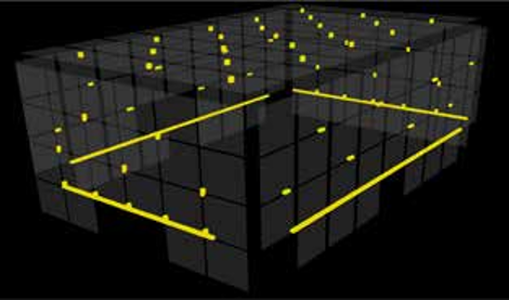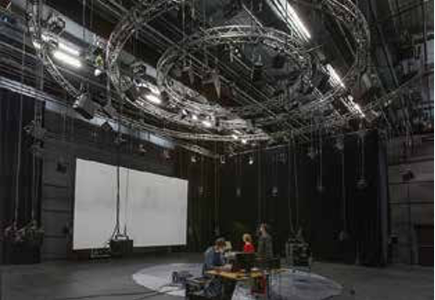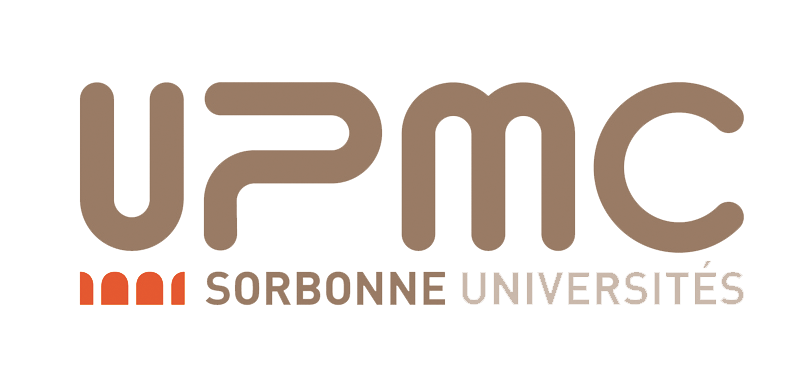La technique Wave Field Synthesis (WFS) désigne un procédé de reproduction holophonique qui permet, par analogie avec les hologrammes visuels, de capter ou synthétiser une scène sonore en préservant les informations spatiales de distance et de direction des sources qui la composent.
Cette approche, initiée par l’université de Delft, dépasse les limites des systèmes conventionnels en termes de fidélité de reproduction sur une zone d’écoute étendue. Tandis que les techniques stéréophoniques conventionnelles (stéréo, 5.1) s’apparentent au trompe-l’œil et ne peuvent ainsi être appréciées que depuis le centre du dispositif, l’holophonie a l’ambition de reconstruire un champ sonore dans lequel les auditeurs peuvent se déplacer en gardant une perception cohérente de la localisation des sources.
La technique Ambisonics consiste à représenter le champ sonore comme une distribution angulaire de la pression acoustique exprimée sur une base de fonctions périodiques de l’espace, les harmoniques sphériques. La captation et la reproduction reposent sur des réseaux de transducteurs concentriques (sphères de microphones ou réseaux de haut-parleurs) qui échantillonnent l’espace et sur des opérations d’encodage et décodage permettant de passer du domaine des transducteurs au domaine des har- moniques sphériques. Plus l’ordre de décomposition en harmonique sphé- rique est élevé, meilleure est la résolution spatiale. On parle alors de Higher Order Ambisonics (HOA). Le formalisme Ambisonics est très puissant et permet une certaine indépendance entre le système de reproduction et le format d’encodage/décodage. Il permet en outre de réaliser de manière efficace des opérations de rotation d’une scène sonore 2D ou 3D ou encore d’opérer des formations de voies (microphone virtuel directif).
Grâce au soutien de la région Île-de-France, du CNRS et de Sorbonne Université, l’Ircam a fait l’acquisition d’un système de diffusion WFS et HOA installé dans l’Espace de projection. Le système inauguré en 2012 est composé, d’une part, d’une couronne horizontale de 264 haut-parleurs régulièrement répartis autour de la scène et du public pour la diffusion en WFS et, d’autre part, d’un dôme de 75 haut-parleurs pour une diffusion tridimensionnelle en mode HOA. Cet équipement a pour double vocation de susciter l’exploration de nouvelles modalités de spatialisation pour la création musicale et de permettre la mise en œuvre d’expériences à carac- tère scientifique consacrées à la réalité virtuelle et la cognition spatiale. Une partie du dispositif est mobile en sorte de permettre son installation hors les murs. Il a été exploité depuis dans le cadre de nombreuses créa- tions musicales, représentations théâtrales et installations sonores in situ ou hors les murs (Operspective Hölderlin de P. Schoeller; Le Père de M. Jarrell ; Mimesis de M. Garcia-Vitoria ; La Tragédie du Roi Richard II d’après W. Shakespeare et mise en scène J.-B. Sastre, Cour d’honneur du Palais des papes à Avignon ; Mon Cœur parle tout seul de D. Ghisi et D. Janne- teau ; Disenchanted Island de O. Neuwirth et T. Rosner ; Pocket of Spaces de N. Barett et The OpenEnded Group).


Schéma d’implantation du système de diffusion dans l’Espace de projection. // Le dispositif HOA installé dans la Grande salle du Centre Pompidou pour la pièce Pocket of Spaces de N. Barrett et The Open Ended Group.
Équipe Ircam : Espaces acoustiques et cognitifs.









